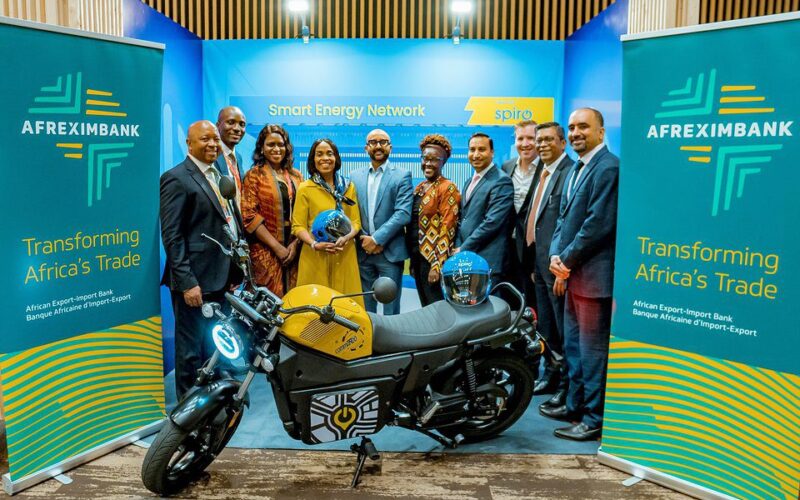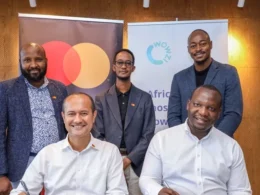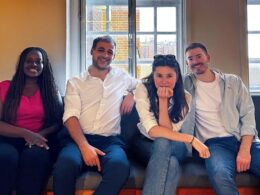Kenyan innovator Elly Savatia has been awarded the prestigious Africa Prize for Engineering Innovation for his revolutionary startup Terp 360, an AI-powered application that transforms speech into sign language using advanced 3D avatars.
The groundbreaking technology addresses critical interpreter shortages across Africa while improving accessibility in educational institutions, workplaces, and public services for deaf and hard-of-hearing communities. As the overall winner, Savatia receives £50,000 (approximately $67,000) to scale his innovation across the continent.
About the Africa Prize for Engineering Innovation
Established in 2014 by the Royal Academy of Engineering, the Africa Prize for Engineering Innovation has become one of the continent’s most prestigious awards for technological innovation and entrepreneurship. Over the past decade, the program has supported 165 businesses from 22 countries, providing invaluable training, mentoring, and communication resources to African innovators.
The comprehensive support program helps entrepreneurs transform promising innovations into scalable businesses that address pressing challenges across the continent. The Africa Prize has become a launchpad for some of Africa’s most impactful engineering solutions, with alumni companies creating jobs, improving lives, and contributing to sustainable development across multiple sectors.
Rigorous Selection Process
The journey to the Africa Prize winner’s podium is highly competitive. Earlier this year, the Royal Academy of Engineering announced a shortlist of 16 innovative startups selected from applications across the continent. These shortlisted entrepreneurs then participated in an intensive eight-month business support program designed to refine their innovations and strengthen their business models.
The comprehensive program provided participants with mentorship from industry experts, business development training, and resources to help scale their innovations. Following the completion of this intensive support period, the Africa Prize judging panel evaluated the finalists and selected four entrepreneurs to compete for the top prize.
How Terp 360 Works
Terp 360 leverages artificial intelligence and 3D avatar technology to create real-time sign language translations of spoken language. The app’s innovative approach uses sophisticated AI algorithms to process speech and generate accurate sign language representations through animated 3D avatars that deaf and hard-of-hearing users can easily understand.
This technology tackles a critical accessibility challenge across Africa, where there is a severe shortage of qualified sign language interpreters. By providing an always-available digital interpretation service, Terp 360 makes communication more accessible in settings where human interpreters may not be available or affordable, including classrooms, healthcare facilities, government offices, and private businesses.
The application represents a significant advancement in assistive technology, offering scalable solutions to accessibility barriers that have long excluded deaf communities from full participation in education, employment, and civic life.
Winner’s Response and Vision
Upon receiving the Africa Prize, Savatia expressed gratitude and highlighted the broader significance of his achievement for African innovation. “I’m totally grateful for this and it is a testament to the innovative assistive technology work that is coming from Africa,” Savatia said during the awards ceremony.
He continued: “I’m really looking forward to the excellence that will come out of Signvrse, the rest of the shortlistees and the African continent.” His comments underscore the growing ecosystem of innovative solutions emerging from Africa to address both local and global challenges.
The £50,000 prize will enable Savatia to expand Terp 360’s reach across Kenya and potentially into other African markets, where millions of deaf and hard-of-hearing individuals face daily communication barriers.
Other Prize Winners and Finalists
Beyond the top prize, the Africa Prize recognized several other outstanding innovations addressing critical challenges across the continent.
Runner-Up Finalists
Three additional finalists each received £10,000 (approximately $13,000) to support the continued development and scaling of their innovations:
Vivian Arinaitwe from Uganda was recognized for Neo Nest, an innovative solution addressing challenges in her market sector. The funding will help Arinaitwe expand Neo Nest’s operations and increase its impact across Uganda and potentially neighboring countries.
Frank Owusu from Ghana received recognition for Aquamet, a technology addressing water-related challenges in the region. The prize money will support Aquamet’s mission to improve water accessibility and management across Ghana.
Carol Ofafa from Kenya was honored for E-Safiri, an innovation in the transportation or mobility sector. The funding will enable Ofafa to scale E-Safiri’s operations and enhance its service offerings.
“One to Watch” Award
In addition to the main prizes, a special £5,000 (approximately $6,500) “One to Watch” prize was awarded to Rui Bauhofer from Mozambique for his innovation Eco-Plates. This special recognition, chosen by the live audience at the awards ceremony, highlights Eco-Plates’ potential for significant future impact.
The audience-selected award demonstrates public enthusiasm for sustainable solutions and recognizes innovations that may require additional development time but show exceptional promise for addressing environmental or social challenges.
Growing Impact of African Innovation
The success of Terp 360 and the other Africa Prize finalists highlights the continent’s growing reputation as a hub for innovative solutions to global challenges. African entrepreneurs are increasingly leveraging advanced technologies including artificial intelligence, machine learning, and mobile platforms to create contextually relevant solutions that address local needs while having potential for global application.
The assistive technology sector, in particular, represents an area where African innovators are making significant contributions. With large populations of underserved communities and limited traditional infrastructure, African entrepreneurs have strong incentives to develop creative, technology-enabled solutions that leapfrog conventional approaches.
Accessibility Technology Market in Africa
The market for accessibility solutions in Africa remains largely underserved, presenting significant opportunities for innovations like Terp 360. According to various estimates, millions of Africans are deaf or hard-of-hearing, yet access to sign language interpretation services remains extremely limited across most of the continent.
Traditional interpretation services are expensive, require advance scheduling, and are concentrated in major urban centers, leaving rural and peri-urban populations with minimal access to communication support. Digital solutions like Terp 360 can democratize access to interpretation services, making them available on-demand through mobile devices that are increasingly ubiquitous across Africa.
Next Steps for Terp 360
With the £50,000 prize money and the credibility that comes with winning the Africa Prize, Savatia and his team at Signvrse are positioned to significantly scale Terp 360’s impact. Potential next steps include:
- Expanding the app’s language capabilities to cover multiple sign languages used across different African countries
- Improving the AI algorithms to enhance translation accuracy and avatar realism
- Developing partnerships with educational institutions, healthcare providers, and government agencies
- Creating offline capabilities for users in areas with limited internet connectivity
- Building community feedback mechanisms to continuously improve the service based on user experiences
Supporting Africa’s Innovation Ecosystem
The Africa Prize for Engineering Innovation plays a crucial role in Africa’s broader innovation ecosystem by providing not just financial support but also mentorship, visibility, and networking opportunities that help entrepreneurs scale their innovations.
The eight-month intensive support program offers participants access to business development expertise, technical mentorship, and connections to potential investors and partners. Many Africa Prize alumni have gone on to secure additional funding, expand into new markets, and create sustainable businesses that generate employment while addressing critical social challenges.












